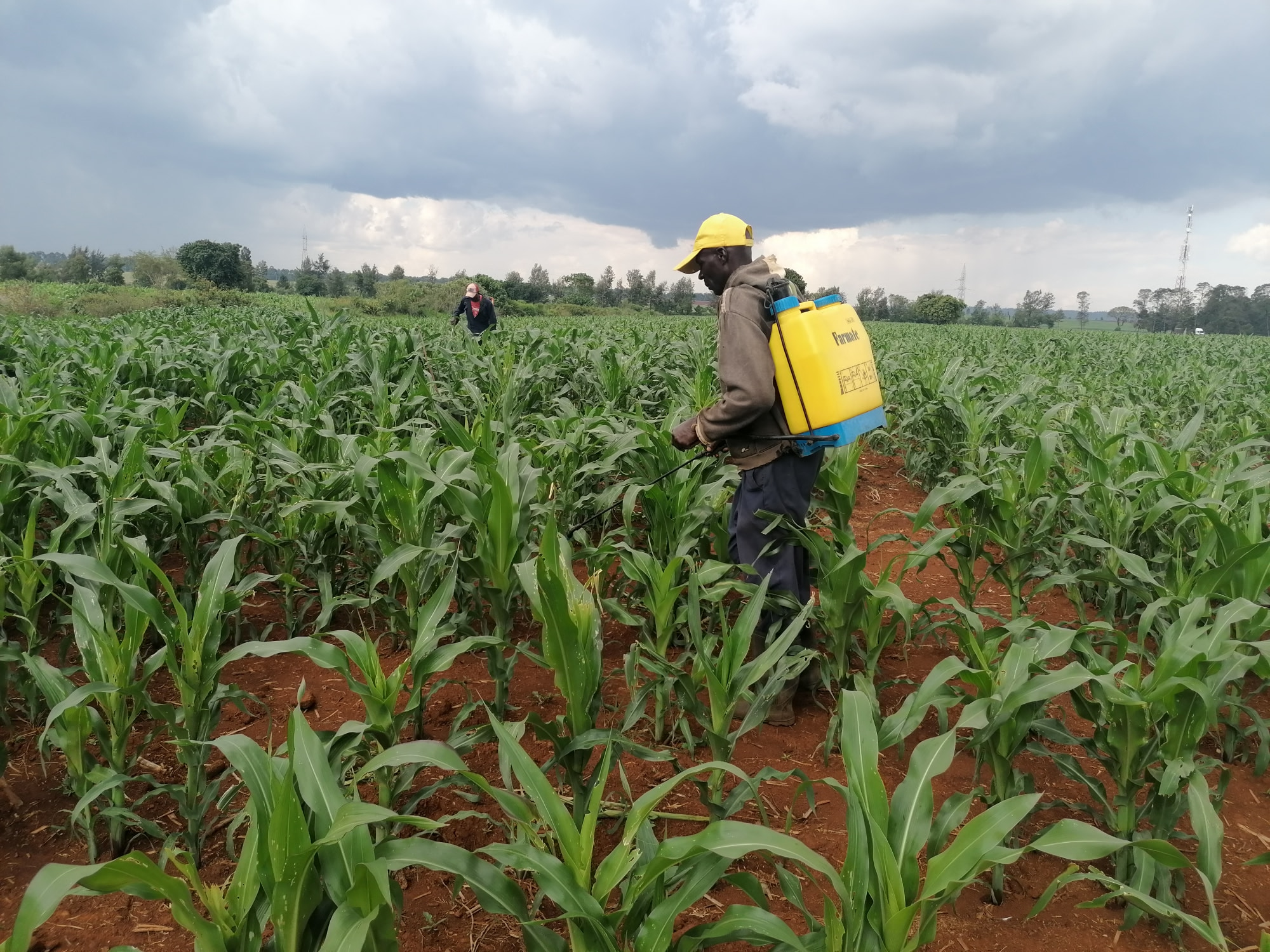Background
The agricultural sector accounts for a large share (4-27%) of the GDP of the countries in Southern Africa, and approximately 13% of their overall export earnings. Although agricultural exports are a major contributor to the economies of these countries, some of them experience significant economic losses due to the rejection of agricultural produce exports, due to non-compliance with relevant residue trade standards or maximum residue limits (MRLs). Exceedance of established MRLs is particularly common, especially for crops in which certain synthetic chemical pesticides are used to control late-season pests. Strategic use of biopesticides has the potential to significantly mitigate pesticide residues since most of these pest control products are not subject to MRLs within importing countries. However, despite the advantages of biopesticides, their widespread adoption and use are affected by challenges in respect of their research, development, registration and commercialisation. The use of biopesticides can go a long way towards reducing late-season synthetic pesticide usage, and in so doing resolve residue violations that disrupt trade and risk food safety. Better compliance with MRL requirements would increase the agricultural sector’s contribution to the economies of countries in Southern Africa, through enhanced exports, the promotion of domestic employment, wealth creation and poverty reduction.

Southern Africa Biopesticides Project
This regional project seeks to address the problem of low export market access by some countries in Southern Africa, owing to the non-compliance with existing MRL trade standards. The project aims to combine the use of conventional pesticides with the use of microbial-based biopesticides to control key pests, within an Integrated Pest Management (IPM) strategy. The regulatory harmonisation component of the project will, inter alia, work with countries to develop common biopesticide regulatory practices. This would enable them to benefit from, among others, reciprocal acceptance of data generated, or registrations concluded, elsewhere - and hence enhance biopesticide registration and use. The residue mitigation component of the project will, through the strategic incorporation of non-residue producing biopesticides following conventional pesticides, help reduce pesticide residue levels and hence enhance compliance with MRL standards and promote trade. The project will also work towards developing the skills, knowledge, attitudes and behaviours needed to ensure that individuals and organisations can work effectively to achieve the project's stated objectives.
Expected results
Harmonised biopesticide regulatory guidelines
This project will produce a set of harmonised guidelines to enable project countries to achieve biopesticide regulatory harmony. This will be preceded by a detailed assessment to ascertain what is needed to obtain legal status for biopesticides, and the timeline estimated to successfully achieve this. Lawyers will work with project countries to develop a "roadmap" to translate these guidelines into their respective national legislation. Training on the implementation of procedures for biopesticide registration under the harmonised framework will also be conducted.System for biopesticide-based residue mitigation
Supervised field trials and laboratory analysis of pesticide residues will be followed by residue decline studies utilising biopesticides in order to ultimately develop a system by which residue levels can be mitigated and compliance with MRL limits enhanced. An assessment of yield and quality criteria will also be performed, as these are critical when developing recommendations for growers, especially for export crops.IPM and Good Agricultural Practice (GAP) strategies
A toolkit on IPM guidelines will be developed, as will guidelines on GAP, for which relevant training will also be provided. Information on all the biopesticides registered in the various countries will be consolidated into an easily accessible database that will be widely disseminated. This will ensure that farmers and other stakeholders are aware of the biopesticides that are available on the market.Beneficiary countries
Southern Africa (Botswana, Mozambique, South Africa, Tanzania, Zambia, Zimbabwe) & Kenya
Project participants
The primary participants of the project include national (bio)pesticide regulatory authorities, national plant protection organisations, researchers, farmers, industry associations, agri-food export companies, and consumers.
Project facts
Objective
Develop a strategy to enable registration and promote the use of biopesticides for late- season pests in key export crops to reduce reliance on synthetic chemical pesticides, enhance compliance with MRL limits, and facilitate trade..
Total budget
USD 1,193,218.77
Funding agency
Standards and Trade Development Facility (STDF)
Implementing agency
International Centre for Genetic Engineering and Biotechnology (ICGEB)
Partners
AG Aligned Global, Asia-Pacific Association of Agricultural Research Institutions (APAARI), CropLife Africa and Middle East, Rutgers University, South African Bioproducts Organisation (SABO), Southern Africa Pesticides Regulators Forum (SAPReF), United States Department of Agriculture (USDA)
Knowledge partners
Food and Agriculture Organisation of the United Nations (FAO), The African Union Inter-African Phytosanitary Council (IAPSC)
Project period
2021- 2024
Contact us
Project Manager
Dr. Dennis Ndolo
ndolo@icgeb.orgTechnical Director
Dr. Jason Sandahl
Jason.Sandahl@agaligned.comRegulatory Expert
Mr. Luis Suguiyama
luis.suguiyama@gmail.com
